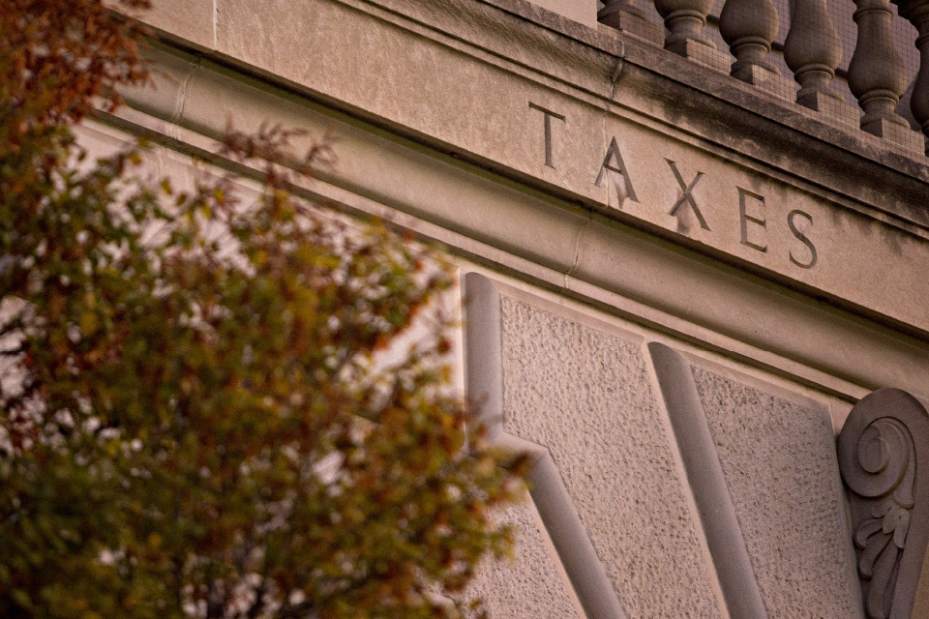When state Treasurer R. Budd Dwyer killed himself during a televised news conference in 1987, witnesses were shocked by the bloody ending to a scandal that rocked Pennsylvania's capital.
Dwyer, 47, chose a bullet from a .357 Magnum revolver over a prison term on a bribery conviction for accepting a $300,000 kickback on a state contract. While his crime fell far short of fantastic, political observers say his public suicide remains the most dramatic event ever associated with corruption, criminality and impropriety in Harrisburg.
"It was a total shock to everybody," recalled John Taylor, a former journalist who then was a deputy press secretary for the late Gov. Robert Casey. "We thought he was going to resign. What he did was totally unexpected."
From the governor's Cabinet to the judiciary to the Legislature, history shows that scandal and disgrace are nothing new in Pennsylvania government, which has endured crimes involving ghost employees, kickbacks, job-selling schemes, thefts, sexual offenses, substance abuse and deaths. Indictments handed down Thursday against a state representative, a former lawmaker and 10 current and former legislative staffers are just the latest in a series of black eyes for the Keystone State in the past four decades.
"Any kind of public corruption is serious business because it causes people to lose confidence in their government," Taylor said. "It's very disheartening to see it happen."
History repeats
But it happens, again and again.
And when it does, a rogues' gallery of names -- including Attorney General Ernie Preate Jr., Auditor General Al Benedict, Supreme Court Justice Rolf Larsen, House Speaker Herbert Fineman and Sen. Frank Mazzei -- comes to mind. Their crimes suggest a pattern of corruption handed down from generation to generation.
Crimes committed by government leaders date to Colonial times in Pennsylvania. However, during the late Gov. Milton Shapp's administration in 1976, the U.S. Justice Department labeled the state as the most corrupt in the nation.
Shapp, governor from 1971 to 1979, never was personally implicated in wrongdoing but repeatedly came under attack for not doing enough to thwart corruption among state and local officials and party leaders. Dozens of people were indicted over a period of four years that fell midway through his tenure in the governor's mansion.
"Back then, they referred to it as Shapp's 'crook-of-the-month club,' " said G. Terry Madonna, director of the Center for Politics and Public Affairs at Franklin & Marshall College.
Retired legislative historian Paul B. Beers wrote in his book "Pennsylvania Politics Today and Yesterday: The Tolerable Accommodation" that seven lawmakers and 11 high party officials were among those to fall during that time. The list, Beers wrote, included Fineman, Mazzei, Senate Finance Chairman Buddy Cianfrani and Reps. Max Homer, Leonard E. Sweeney, Ulysses Shelton and Robert Bellomini.
Mazzei, a Democrat from Pittsburgh's South Side, in 1975 became the first senator expelled in 100 years after his conviction for extortion. His expulsion set a precedent, according to Vincent Carocci, an author and former journalist who was Casey's press secretary and worked in state government for 21 years.
"His case established that a conviction isn't a conviction until the judge renders a sentence, which means that a guilty verdict from a jury isn't an actual conviction," Carocci said. "It also led to a statute that says when a state official is convicted in criminal proceedings he forfeits the right to collect state pension benefits."
During Mazzei's time, it appeared to many as though corruption was tradition.
Madonna wrote after the 2003 death of Benedict that "it was far from unusual for a Pennsylvania public official to be caught in some slick influence peddling scheme or other act of official corruption" during the 1970s and 1980s.
Benedict, who was elected auditor general in 1976, participated in a job-selling racket and authorized government contracts in exchange for bribes and kickbacks. He pleaded guilty in 1988 to multiple counts of racketeering and tax evasion, for which he was sentenced to six years in prison.
The current situation, Madonna said, is "very unusual" for two reasons. He explained that it is different because it is the largest round of indictments of its kind "at any one time based on one grand jury in the modern history of Pennsylvania" and because it includes the wives of two former legislative staffers.
"I've never seen an instance where wives have been charged. It's obviously a complete breakdown of the internal judgment of leaders," he said.
Bad choices
More than once, poor judgment has led to heartache -- and in some cases, prison uniforms -- for wayward elected officials and government employees.
Take Preate, for example.
In the early 1990s, Preate, then attorney general, was a rising star in Republican state politics on a trajectory headed toward the governor's mansion. Instead, he left his position in disgrace in 1995 and served 14 months in jail on mail fraud convictions related to campaign contributions during his first run for office in 1989.
"That was a shock," Madonna said.
Equally stunning was the downward spiral of former state Supreme Court Justice Rolf Larsen, political observers say.
In 1994, the 59-year-old Mt. Washington man lost his seat on the bench and was ordered to serve two years' probation on two counts of conspiracy to fraudulently obtain prescription drugs. Records show Larsen had employees fill prescriptions in their names for him to hide his battle with clinical depression and anxiety.
Although many government crimes are committed over a long period of time, a single, split-second decision ruined the political career of four-term Rep. Thomas Druce of Bucks County.
Druce, once considered an emerging leader among state Republicans, in 1999 struck and killed a man on a Harrisburg street and left the scene. Months later, after repairing and trading in his vehicle, he told police he thought he hit a street sign when he killed 42-year-old Kenneth Cains.
Druce pleaded guilty in 2000 to charges of leaving the scene of a fatal accident, tampering with evidence and insurance fraud. He served two years of a four-year prison sentence before his release on parole in 2006.
More than two decades ago, state Sen. Vincent Fumo, a Philadelphia Democrat, escaped a prison sentence after jurors found him guilty of placing ghost employees on the state legislative payroll. Prior to his 1981 scheduled sentencing, Fumo's guilty verdict -- and those of then state Sen. Thomas Nolan of Wilkins and Peter Camiel, head of Philadelphia's Democratic Party -- were overturned on appeal.
Fumo has chosen to retire rather than seek re-election after his February 2007 indictment on 139 counts of fraud, conspiracy and directing a cover-up. His trial is scheduled for September.
Rattling off names, dates and criminal cases, Carocci said state history shows "a pattern of conduct" with regard to corruption. Nevertheless, he believes the latest indictments overshadow the crimes common to decades ago, when most governmental corruption cases involved individual wrongdoing.
"The attorney general is alleging that there was an institutional process in place that rewarded employees and staff for political work and campaigning," Carocci said.
"There's been nothing of this magnitude."







